
ADVANCES IN POLYMER TECHNOLOGY
Scope & Guideline
Exploring New Frontiers in Polymer Engineering.
Introduction
Aims and Scopes
- Polymer Synthesis and Modification:
Research in this area explores novel methods for synthesizing polymers and modifying existing ones to enhance their properties for various applications. - Biopolymer Development and Applications:
This scope emphasizes the use of bio-based materials, focusing on sustainability and environmental impact, including the development of biodegradable polymers and their applications. - Composite Materials and Reinforcements:
The journal covers studies on polymer composites that incorporate various reinforcements, such as natural fibers, nanoparticles, and other materials, to improve mechanical, thermal, and chemical properties. - Polymer Processing Techniques:
Research on processing techniques, including additive manufacturing, injection molding, and electrospinning, is vital for transforming polymer materials into usable forms. - Smart and Functional Polymers:
This area involves designing polymers with specific functionalities, such as stimuli-responsiveness, self-healing capabilities, and enhanced sensor applications. - Environmental Impact and Recycling:
The journal addresses the environmental implications of polymer use, focusing on recycling methods, waste reduction, and the life cycle assessment of polymer materials.
Trending and Emerging
- Sustainable and Biodegradable Polymers:
Research on sustainable materials, particularly biopolymers and biodegradable composites, is gaining traction as industries seek environmentally friendly alternatives to traditional plastics. - Smart Polymers and Responsive Materials:
There is a growing interest in polymers that respond to external stimuli, such as temperature, pH, or light, leading to innovative applications in drug delivery and soft robotics. - Nanocomposites and Advanced Reinforcements:
The incorporation of nanoparticles and advanced reinforcements into polymer matrices is trending, enhancing the mechanical, thermal, and electrical properties of materials for high-performance applications. - Recycling and Upcycling of Polymers:
Research focusing on recycling techniques, upcycling of waste materials into valuable products, and life cycle analysis of polymers is emerging due to increased environmental awareness. - 3D Printing and Additive Manufacturing:
The application of polymers in additive manufacturing is rapidly advancing, with research focused on optimizing materials and processes for various applications in industries such as healthcare and aerospace.
Declining or Waning
- Traditional Polymer Characterization Methods:
Research focusing solely on conventional characterization techniques has decreased as more advanced and integrated approaches are being developed, emphasizing the need for comprehensive analysis. - Solely Synthetic Polymer Studies:
There is a noticeable decline in papers exclusively dealing with synthetic polymers without consideration for biopolymers or composites, as the field increasingly values sustainability. - Basic Polymer Chemistry:
Basic studies on polymer chemistry are waning, with a shift towards application-oriented research, particularly in the context of functional and smart materials. - Non-Functionalized Polymers:
The focus on non-functionalized polymers is declining as the demand for polymers with specific functionalities and applications in emerging technologies rises.
Similar Journals
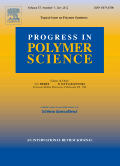
PROGRESS IN POLYMER SCIENCE
Elevating Knowledge in Ceramics, Composites, and BeyondPROGRESS IN POLYMER SCIENCE is a prestigious academic journal published by PERGAMON-ELSEVIER SCIENCE LTD, dedicated to advancing the field of polymer science. With an ISSN of 0079-6700 and an E-ISSN of 1873-1619, this journal has established itself as a leading source of high-quality research since its inception in 1967. It ranks in the top quartile (Q1) across multiple categories including Ceramics and Composites, Materials Chemistry, Organic Chemistry, Polymers and Plastics, and Surfaces and Interfaces, reflecting its strong reputation and impact within the scientific community. The journal features rigorous peer-reviewed articles that not only contribute to theoretical advancements but also emphasize practical applications of polymer science in various industries. Although it is not an open-access journal, it remains accessible through institutional subscriptions and provides invaluable insights and data for researchers, professionals, and students alike. PROGRESS IN POLYMER SCIENCE is essential reading for anyone looking to stay abreast of the latest developments and innovations in this dynamic field.

IRANIAN POLYMER JOURNAL
Innovating Through Interdisciplinary ResearchWelcome to the Iranian Polymer Journal, an esteemed publication encompassing a rich history since its inception in 1996 and extending its scholarly reach up to 2024. Published by Springer from Switzerland, this journal stands out in the fields of Chemical Engineering, Materials Chemistry, and Polymers and Plastics, proudly holding a Q2 category ranking in each of these disciplines for 2023. With an ISSN of 1026-1265 and an E-ISSN of 1735-5265, the journal serves as a vital resource for researchers, professionals, and students, offering insights into polymer science and interdisciplinary applications. Although not an open-access journal, it presents an invaluable platform for high-quality research dissemination and robust peer-reviewed articles. With Scopus rankings indicating its respected position within the academic community, the Iranian Polymer Journal is committed to advancing knowledge and fostering innovation in polymer-related studies, making it an essential addition to your research library.

POLYMER SCIENCE SERIES C
Catalyzing Interdisciplinary Collaboration in Polymer StudiesPOLYMER SCIENCE SERIES C is a distinguished journal published by MAIK NAUKA/INTERPERIODICA/SPRINGER, focusing on advancing research in the fields of polymer science and materials chemistry. With an ISSN of 1811-2382 and an E-ISSN of 1555-614X, this journal has been actively disseminating vital findings since its inception in 2000, aiming to converge knowledge and innovations until 2024. Operating out of the United States, it stands out with its current quartile rankings of Q3 across several categories, including Chemistry (miscellaneous), Materials Chemistry, and Polymers and Plastics, highlighting its evolving significance in the academic community. Despite its open access status, the journal attracts an engaged audience of researchers, professionals, and students, providing a platform for the publication of rigorous peer-reviewed articles that explore the intricacies of polymer synthesis, characterization, and applications. POLYMER SCIENCE SERIES C not only serves as a vital resource for keeping abreast of recent developments in polymer research but also stimulates interdisciplinary collaborations and innovative approaches in material science.

POLYMER-KOREA
Bridging Innovation and Application in Polymer SciencePOLYMER-KOREA, an esteemed publication by the POLYMER SOC KOREA, serves as a vital platform for disseminating groundbreaking research in the domains of Chemical Engineering, Materials Chemistry, and Polymers and Plastics. Founded in 1996, this journal aims to bridge the gap between academic inquiry and industrial application, fostering innovation in polymer science. With an ISSN of 0379-153X and an E-ISSN of 2234-8077, POLYMER-KOREA provides a rigorous peer-reviewed environment, although it does not currently offer open access options. Based in Seoul, South Korea, and slated for converged years up to 2024, the journal is indexed in Scopus and has been ranked in the 2023 Q4 category in its respective fields, highlighting its niche yet competitive position within the academic community. Researchers, professionals, and students alike will find the journal an invaluable resource, honing in on critical advancements and fostering collaborative discussion within the spectrum of polymer science.

Polymers
Driving forward-thinking research in polymer chemistry.Polymers is a premier journal published by MDPI, dedicated to advancing the field of polymer science and technology. This open-access journal, established in 2009, has quickly gained prominence in the academic community, serving as a vital platform for disseminating high-quality research articles, reviews, and communications in the realms of chemistry, polymers, and plastics. Based in Switzerland, with an impressive ranking in the Q1 quartile for both Chemistry and Polymer studies, Polymers boasts a significant impact factor, reflecting its rigorous peer-review process and esteemed editorial board. Researchers, professionals, and students alike benefit from the broad accessibility of content, allowing for a more extensive reach and engagement within the scientific community. As a key resource for the latest advancements and innovations in polymer research, Polymers continues to lead discussions, inspire collaborations, and foster the development of novel materials that shape various industrial applications.

INTERNATIONAL JOURNAL OF POLYMER ANALYSIS AND CHARACTERIZATION
Unlocking the potential of polymer analysis.International Journal of Polymer Analysis and Characterization is a distinguished scholarly publication dedicated to the field of polymer science, with a focus on innovative methodologies and significant advances in the analysis and characterization of polymeric materials. Published by Taylor & Francis Ltd in the United Kingdom, this journal serves as a vital resource for researchers, professionals, and students deeply engaged in Analytical Chemistry, Chemical Engineering, and Polymer Science. With a convergence spanning from 1995 to 2024, it holds a Q3 ranking in the 2023 category quartiles for its valuable contributions to the fields of Analytical Chemistry, Chemical Engineering, and Polymers and Plastics. Despite being a non-open access publication, its rigorous peer-review process and comprehensive coverage of current trends ensure that the journal remains a crucial platform for disseminating impactful research. The journal is indexed in various databases, underscoring its relevance and quality in the academic community. Exploratory studies and articles that push the boundaries of polymer analysis find a welcoming home within these pages, making it an essential read for those aiming to stay at the forefront of polymer research.
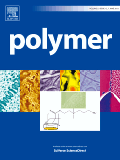
POLYMER
Pioneering Research in Polymer Synthesis and ApplicationsPOLYMER, an esteemed journal published by Elsevier Science Ltd, stands at the forefront of polymer science, presenting cutting-edge research that encompasses the realms of Materials Chemistry, Organic Chemistry, and Polymers and Plastics. With a remarkable impact factor reflecting its significance in the academic community, POLYMER has been a vital resource since its inception in 1960, contributing to a converged body of knowledge through to 2024. Rated Q1 in all relevant categories as of 2023, and boasting impressive Scopus rankings, this journal not only facilitates advanced discussions in polymer synthesis, characterization, and applications but also serves as a critical platform for collaborative research among scholars, professionals, and students. While it offers content primarily via subscription, POLYMER remains dedicated to fostering innovation and excellence in the field, making it an essential read for anyone passionate about polymer science.
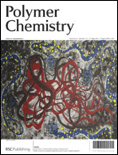
Polymer Chemistry
Catalyzing Discovery in Biomedical and Organic PolymersPolymer Chemistry is a premier peer-reviewed journal published by the Royal Society of Chemistry, focusing on cutting-edge research and developments in the field of polymer science. With its ISSN 1759-9954 and E-ISSN 1759-9962, this journal has established a significant impact within the academic community, as evidenced by its impressive Q1 ranking in areas such as Biomedical Engineering, Organic Chemistry, and Polymers and Plastics. Over its convergence period from 2010 to 2024, Polymer Chemistry has become an essential resource for researchers, professionals, and students, showcasing innovative studies that advance the understanding of polymer behavior and applications. The journal does not currently offer open access, allowing for a traditional but rigorous peer-review process ensuring high-quality publications. For those engaged in the rapidly evolving disciplines of biochemistry and bioengineering, Polymer Chemistry serves as a vital platform for disseminating influential findings and fostering interdisciplinary collaboration in a global context.
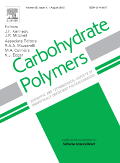
Carbohydrate Polymers
Fostering collaboration in polymer research.Carbohydrate Polymers is a prestigious academic journal, published by ELSEVIER SCI LTD, that plays a vital role in the field of materials chemistry, organic chemistry, and polymer science. With its Q1 category rankings in these domains, this journal serves as a critical platform for disseminating high-quality research, innovative methodologies, and significant advancements in carbohydrate-based polymers. Since its inception in 1981 and continuing until 2025, it has fostered critical discussions and collaborations among researchers, professionals, and students worldwide. Although it does not offer open access, its rigorous peer-review process ensures that only the most impactful studies are published. By highlighting new developments in the synthesis, characterization, and application of carbohydrate polymers, Carbohydrate Polymers consistently contributes to the enhancement of knowledge and technology within its field, making it an essential resource for anyone working at the intersection of chemistry and materials science.
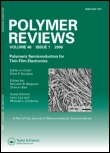
Polymer Reviews
Advancing the frontiers of polymer science.Polymer Reviews, published by Taylor & Francis Inc, is an esteemed journal dedicated to the intricate and evolving field of polymer science. With its ISSN 1558-3724 and E-ISSN 1558-3716, the journal has established a significant presence among researchers and practitioners alike, evidenced by its impressive categorization in the Q1 quartiles across multiple disciplines, including Biomedical Engineering, Materials Chemistry, and Renewable Energy. Since its inception in 2006 and continuing through 2024, Polymer Reviews has consistently aimed to advance the knowledge base of polymer applications and innovations, providing a platform for comprehensive review articles that stimulate further research and inspire practical solutions. The journal, ranking within the top percentile across several Scopus categories, underscores its impact and relevance in a rapidly developing scientific landscape. Though not an open-access journal, it remains a vital resource for those invested in the future of materials science and engineering.